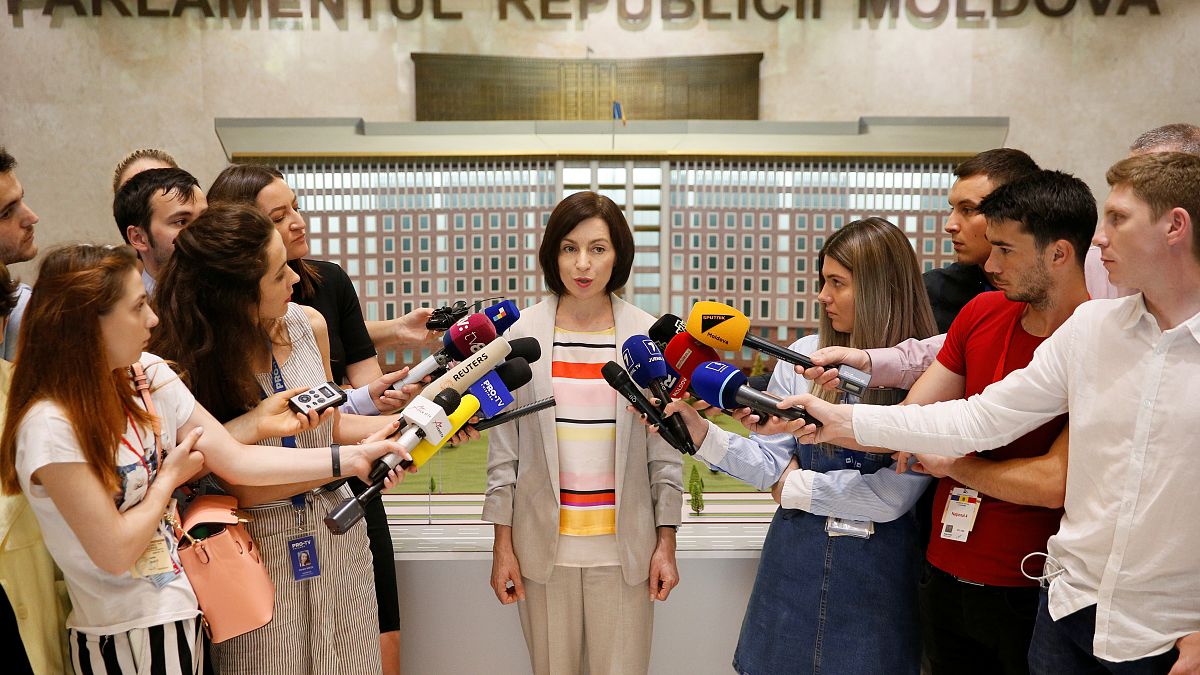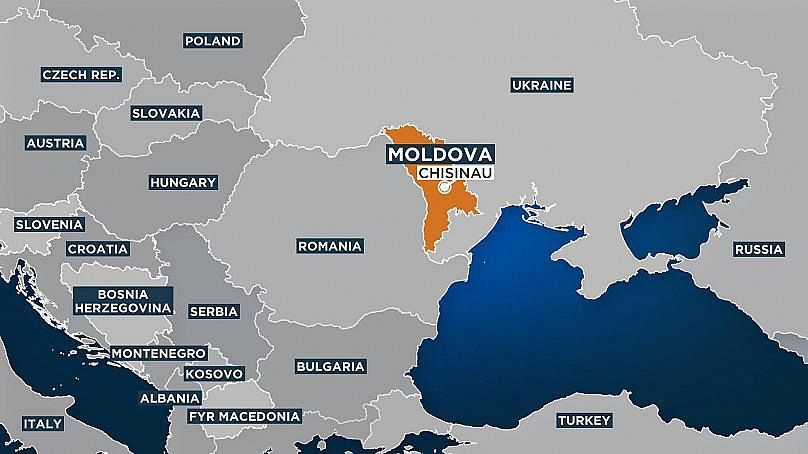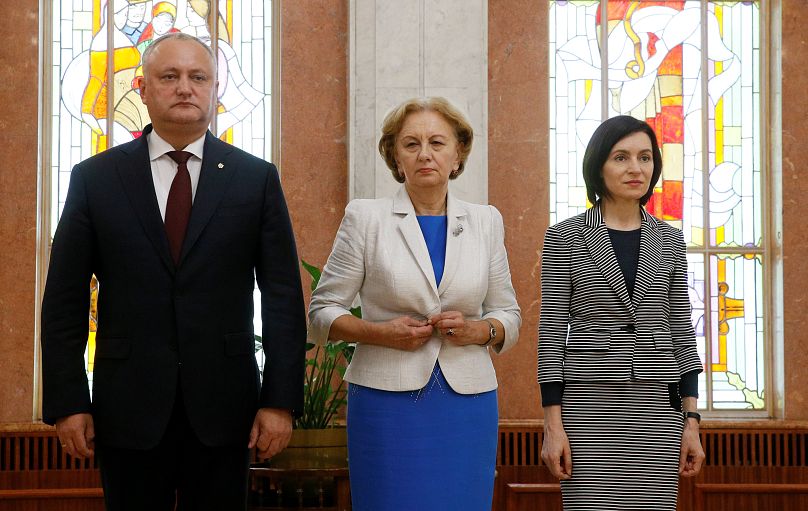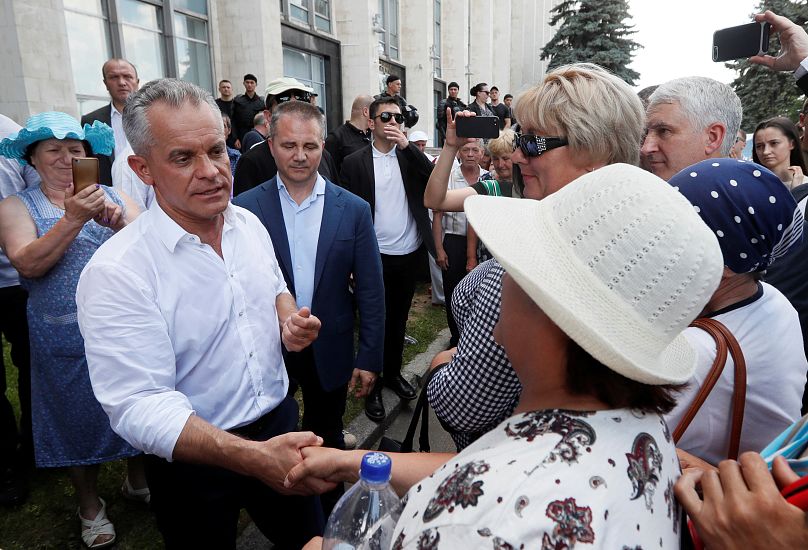Pro-Europe and pro-Russian forces have long vied for supremacy Moldova, which finds itself nestled between Romania and Ukraine — here's how the current political crisis unfolded.
A flurry of reports came out of Moldova over the weekend (June 8-9) claiming the country's constitutional court had stripped pro-Russian President Igor Dodon of power and replaced him in the interim with former prime minister Pavel Filip.
Filip immediately signed a decree to hold a snap election in September, but the country's parliament refused to accept, claiming the country's state institutions had been seized.
The moves deepened an ongoing political crisis in the country, which has been raging since inconclusive elections in February.
READ MORE: Moldovan president suspended, snap elections called amid deepening crisis
Pro-EE and pro-Russian forces have long vied for supremacy in Moldova, which finds itself nestled between Romania and Ukraine.
Here's how the current political crisis unfolded.
Who are the key players?
To understand what's going on in Moldova, here are the parties going head-to-head and the key players you need to know about:
Democratic Party of Moldova (DPM): Chaired by the controversial oligarch Vladimir Plahotniuc, the DPM governed before Moldova’s last general election. Despite coming fourth it got into power by joining with liberals and some former communists. It claims to be pro-European, but critics say this is not reflected in its actions.
Socialists: The party, piloted by its unofficial leader, Dodon promotes a closer relationship with Russia.
ACUM: This pro-EU alliance marries both Dignity and the Truth Platform Party, headed up by Andrei Năstase, and Party of Action and Solidarity, led by Maia Sandu.
What happened after the February elections?
In short: months of political deadlock.
In the February 24 elections four parties came out on top: the Socialists, followed by the Democratic Party, then the ACUM electoral bloc, and finally the Șor (the party of a convicted oligarch).
None had a majority, so what ensued was months of negotiations, with no one really sitting down to the negotiating table until several high-profile officials visited from the EU, US and Russian Federation.
READ MORE: Moldova mulls Moscow or Brussels as voters head to the polls | Euronews explains
How did events unfold over the weekend?
News of a surprise political alliance surfaced on Saturday, June 8 — the Socialists and ACUM, aligned to Moscow and Brussels respectively, to block the DMP and its powerful tycoon reclaiming power.
Their mandate was to rid Moldova of oligarchs.
"The Democratic Party didn't accept this," Bucataru, executive director at the Foreign Policy Association of Moldova, told Euronews. "They were expecting they'd form a coalition with the Socialists — they were outraged and realised they were losing power."
The party reacted by "using the constitutional court to issue rulings in their favour," temporarily stripping Dodon of his powers and putting the DPM's Filip back in the role of president.
"The constitutional court in Moldova is very much under the political influence of the Democratic Party," Bucataru explained.
Filip, arguing that the coalition had missed the deadline to form a government stipulated in the country's constitution, was in office long enough to issue a decree to dissolve parliament and called early elections for September 6.
How has Moldova seen 'backsliding in democratic standards'?
In November 2018, the European Parliament expressed its grave concern about backsliding in relation to democratic standards “resulting in the Republic of Moldova being a state captured by oligarchic interests with a concentration of economic and political power in the hands of a small group of people."
"The current political crisis is very much a continuation of the degradation of the democratic competition after the change of the electoral system in 2017 from proportional to mixed voting," Dionis Cenusa, a researcher on the EU-Eastern Partnership and Russian oligarchs at the University of Giessen, explained to Euronews.
As a consequence of this change, the February elections favoured the Democrats, who got 30 seats, including other smaller groups loyal to them — the extra-parliamentary opposition got fewer seats and were presented with less political opportunities for coalitions.
The new parliament on June 11 voted to go back to the mixed proportional electoral system.
What now?
Moldova now finds itself in a new stalemate: Parliament continues to convene and has voted for a set of anti-corruption reforms, while Plahotniuc’s ruling government refuses to cede power, supported by the constitutional court.
Dodon on Tuesday scrapped the decree for a snap parliamentary election, saying the decree signed by Filip "does not comply with constitutional norms".
"The end of the political crisis depends on the political dialogue, the recognition of the new power by the international community, and the transfer of power at the national level," said Cenusa.
The United States, EU and NATO have urged both sides to show restraint, with Russia welcoming the formation of the new government and expressing it hoped matters would stabilise soon.
The EU did not explicitly endorse the new government but took "good note" of the formation of a coalition, adding: "the European Union stands ready to work with the democratically legitimate government."
"I don't think the leaders of the Socialist party and the ACUM block will step down," Bucataru said, "They need to stay firm in their positions for the new government to continue its agenda.
"This is a crucial moment for Moldova and indeed a historic one because we have two leaders who are actively risking their private lives to come to a consensus to de-oligarchise the country," she concluded.



